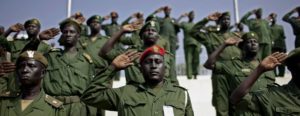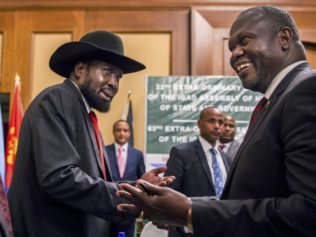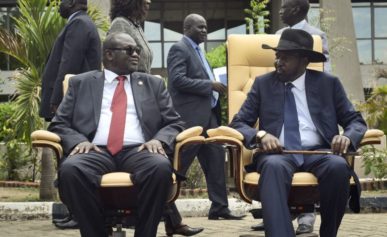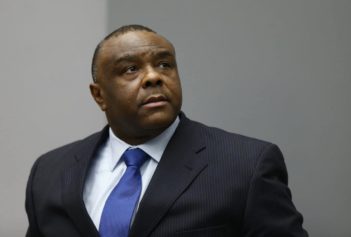
The spokesman for the South Sudan military, Philip Aguer, said authorities in the state capital of Bor were not answering their phones. Officials in the South Sudan government believe this is because they have defected.
“We lost control of Bor to the rebellion,” Aguer said.
A spokesman for the U.N. secretary general’s office said that according to the Red Cross, at least 19 civilians had been killed in Bor.
The BBC reports that Bor, the capital of Jonglei, has long been seen as one of the most volatile areas of South Sudan.
There were also rising tensions in Unity and Upper Nile states, as soldiers from the majority Dinka tribe of President Kiir are clashing with those from the Nuer ethnic group of the ousted Vice President Machar.
Since the alleged coup attempt on Sunday, at least 500 people had been killed, most of them soldiers, and at least 700 more have been wounded, according to the information minister, Michael Makuei Lueth.
The U.N. has asked Uganda’s president, Yoweri Museveni, to mediate between the rival factions.
Machar denied allegations that he was responsible for the coup, telling the BBC, “Salva wanted to frame me. I had to flee. They are hunting me down.”
He blamed Sunday’s fighting on a conflict between members of the presidential guard, and charged that government troops had used the incident to arrest some of his supporters.
This latest conflict has been building since July, when Kiir dismissed his entire cabinet, including Machar, in an apparent power struggle. Machar and other senior politicians have accused the president of intolerance and dictatorship. Their struggle is a reflection of a larger ethnic conflict in the world’s newest country. The Nuer have been complaining that the government is dominated by Dinka.
At a news conference yesterday, Kiir said in Juba that he was willing to enter talks with Machar, his archrival within the ruling Sudan People’s Liberation Movement.
U.N. Secretary General Ban Ki-moon said on Wednesday that South Sudan was experiencing a political crisis that “urgently needs to be dealt with through political dialogue.”
Meanwhile, to the southwest of South Sudan, Central African Republic, a country that has been overrun with horrific violence, received a visit from Samantha Power, the new U.S. ambassador to the U.N.
Power said she was visiting because she wanted to see for herself the horror in CAR, where she is scheduled to meet with government leaders, peacekeepers, aid workers and civilians who survived machete-wielding militias.
“To take a plane in here at this stage is very important and very much a sign of the priority the president attaches to events on the ground and, ultimately, stabilization in the Central African Republic,” she said aboard an Air Force plane from Washington.
The U.S. has no economic or strategic interests in CAR, but Power built her reputation on alerting the world to mass atrocities, such as the one that occurred in Rwanda. In the CAR, at least 600,000 people have been chased from their homes, according to the U.N. About 500 have been killed in the past month in the capita Bangui alone.
“She has been the chief advocate for a stronger U.S. role in dealing with the situation in the Central African Republic, which has led Obama to rapidly scale up the amount of money the Americans are providing,” said Peter Bouckaert, a researcher at Human Rights Watch whose scary report on the recent violence in the country was released on Thursday. “At the same time, going for a United Nations peacekeeping mission is a very expensive venture, and it is a commitment they’re not ready to make at the minute.”


